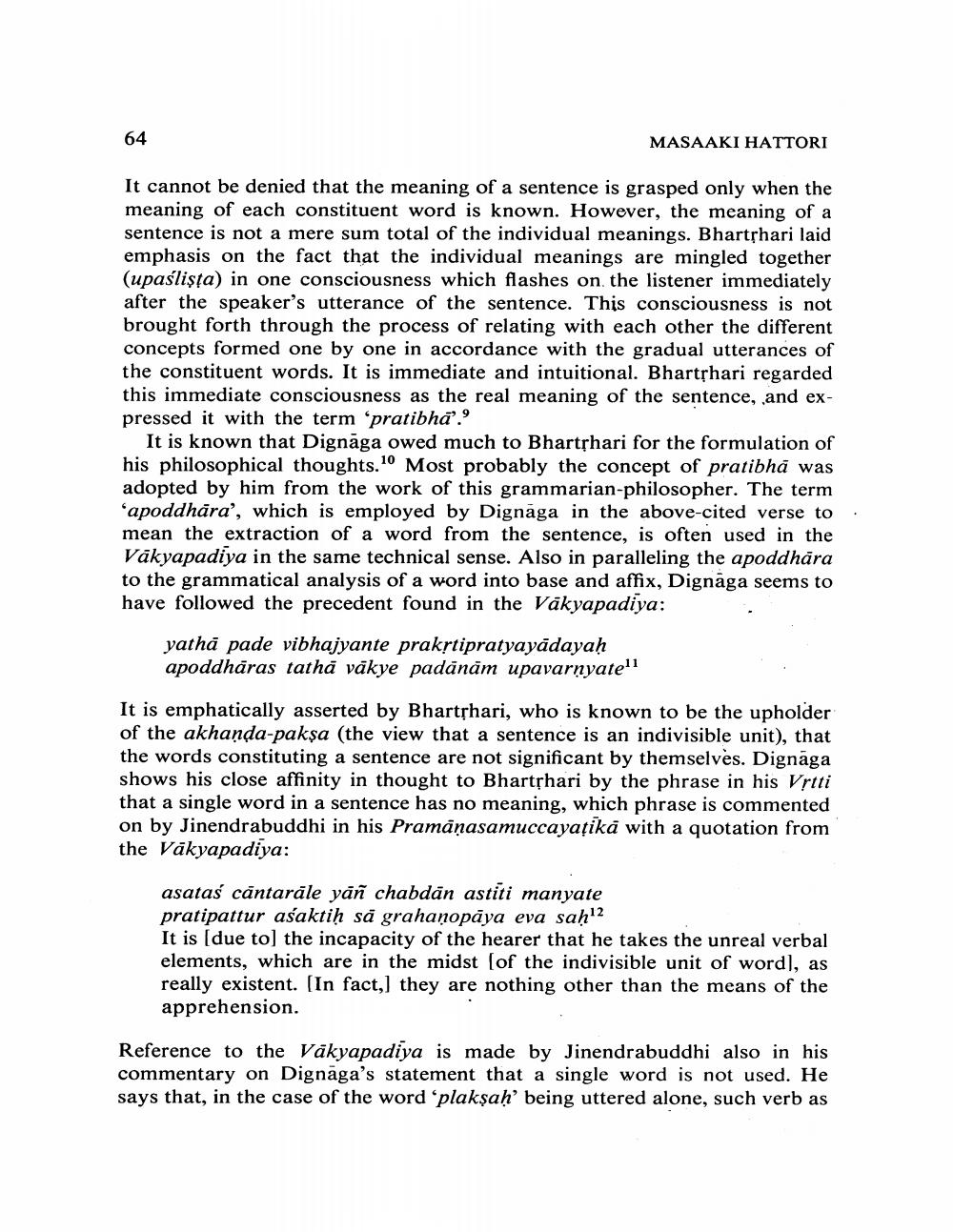Book Title: Apoha And Pratibha Author(s): Masakki Hattori Publisher: Masakki Hattori View full book textPage 4
________________ 64 MASAAKI HATTORI It cannot be denied that the meaning of a sentence is grasped only when the meaning of each constituent word is known. However, the meaning of a sentence is not a mere sum total of the individual meanings. Bhartshari laid emphasis on the fact that the individual meanings are mingled together (upaślişta) in one consciousness which flashes on the listener immediately after the speaker's utterance of the sentence. This consciousness is not brought forth through the process of relating with each other the different concepts formed one by one in accordance with the gradual utterances of the constituent words. It is immediate and intuitional. Bhartshari regarded this immediate consciousness as the real meaning of the sentence, and expressed it with the term 'pratibha. It is known that Dignāga owed much to Bhartshari for the formulation of his philosophical thoughts. 10 Most probably the concept of pratibha was adopted by him from the work of this grammarian-philosopher. The term 'apoddhāra', which is employed by Dignaga in the above-cited verse to. mean the extraction of a word from the sentence, is often used in the Vākyapadiya in the same technical sense. Also in paralleling the apoddhāra to the grammatical analysis of a word into base and affix, Dignāga seems to have followed the precedent found in the Väkyapadiya: yatha pade vibhajyante prakrtipratyayadayah apoddhāras tathā vākye padanām upavarnyatell It is emphatically asserted by Bhartshari, who is known to be the upholder of the akhanda-pakșa (the view that a sentence is an indivisible unit), that the words constituting a sentence are not significant by themselves. Dignāga shows his close affinity in thought to Bhartshari by the phrase in his Vrtti that a single word in a sentence has no meaning, which phrase is commented on by Jinendrabuddhi in his Pramāṇasamuccayaţikā with a quotation from the Väkyapadiya: asatas cantarále yāñ chabdän astiti manyate pratipattur aśaktiḥ să grahaņopāya eva sah12 It is (due to the incapacity of the hearer that he takes the unreal verbal elements, which are in the midst of the indivisible unit of word), as really existent. (In fact, they are nothing other than the means of the apprehension. Reference to the Vakyapadiya is made by Jinendrabuddhi also in his commentary on Dignāga's statement that a single word is not used. He says that, in the case of the word 'plakṣaḥ' being uttered alone, such verb asPage Navigation
1 2 3 4 5 6 7 8 9 10 11 12 13
